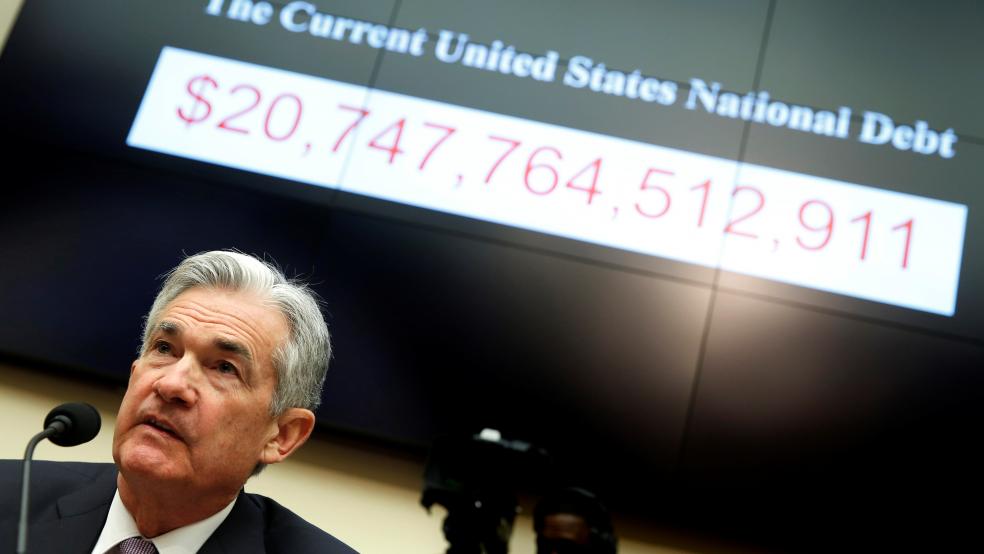New Federal Reserve Chair Jerome Powell testified before Congress Tuesday for the first time since being sworn in as the central bank’s leader. In his prepared remarks, Powell sounded upbeat about the economy, saying that the outlook “remains strong” and that “some of the headwinds the U.S. economy faced in previous years have turned into tailwinds.” He noted that “fiscal policy has become more stimulative and foreign demand for U.S. exports is on a firmer trajectory.”
Here’s more from Powell:
On inflation and interest rates: Powell said that he expects inflation to rise this year and stabilize around the Fed’s 2 percent annual target rate “over the medium term,” adding that “wages should increase at a faster pace as well.” Markets heard some hawkish notes in the testimony, with federal-funds futures signaling a higher chance that the Fed will raise rates four times rather than three this year.
On the debt ceiling: “It is very important that the federal government and government generally be on a sustainable fiscal path, meaning as the Baby Boomer generation retires we’ll need to address the significant fiscal issues that are coming to us over time … and I think it’s important that Congress do that. At the same time, the debt ceiling should be something that we always raise in a timely fashion. There’s no other country in the world that has a separate vote over whether to pay bills that we’ve already agreed to incur, and I think the United States has never defaulted on a principal or interest payment and never should, and I think doing so would be something I’d really hate to see and could bring very significant consequences.”
On fiscal policy: “[W]e really need to get on a sustainable fiscal path and the time to really be doing that is now. And the second thing I’ll say is that when fiscal changes are made it’s important that to the extent possible they be directed at enhancing the productive capacity of the economy. We [at the Fed] can’t affect productivity other than through keeping prices stable and regulation on a balanced basis. And productivity is the thing that allows per capita incomes to rise over time. So we don’t control the potential long-run growth rate. You [in Congress] have much more authority over that, and I think to the extent fiscal policy can focus on way to increase attachment to the labor force, create incentives for more skills and aptitudes among our labor force and greater investment in R&D and that kind of thing, that’s a healthy thing.”
On the effects of the new tax law: “My personal view would be that there will be a meaningful increment to demand at least for the next couple of years” from the combination of the tax cuts and spending increases passed by Congress, Powell said. When asked how much of the tax cut will go into salaries and wages versus corporate share buybacks and investments, Powell said the Fed doesn’t have an estimate for what that number would be.



